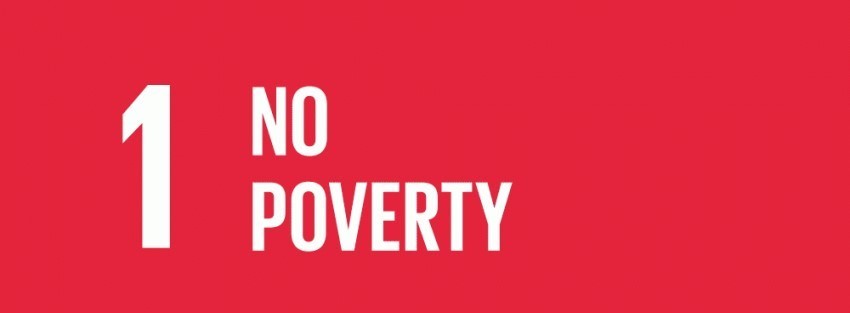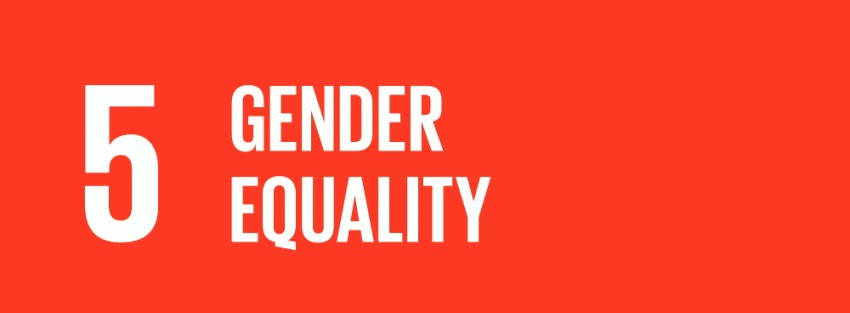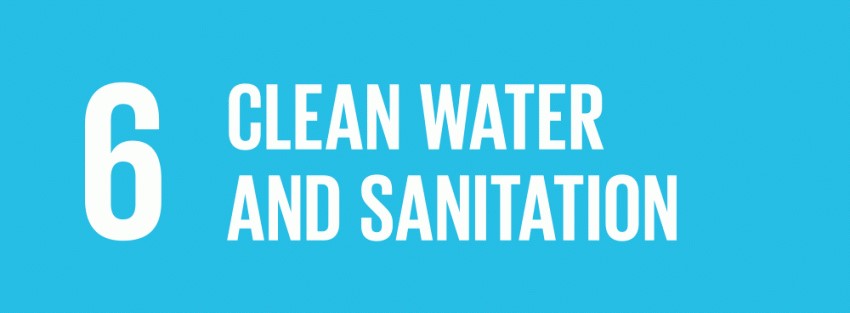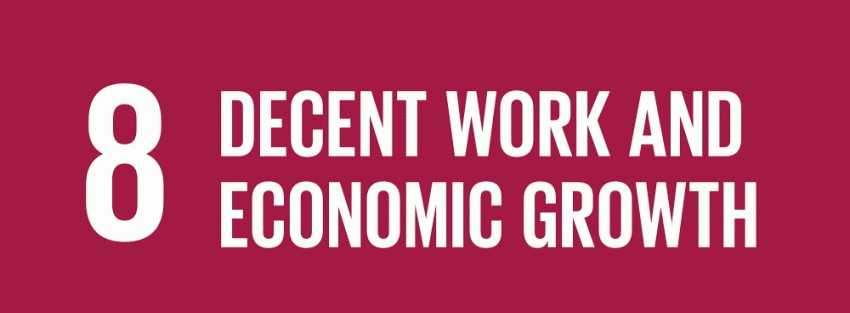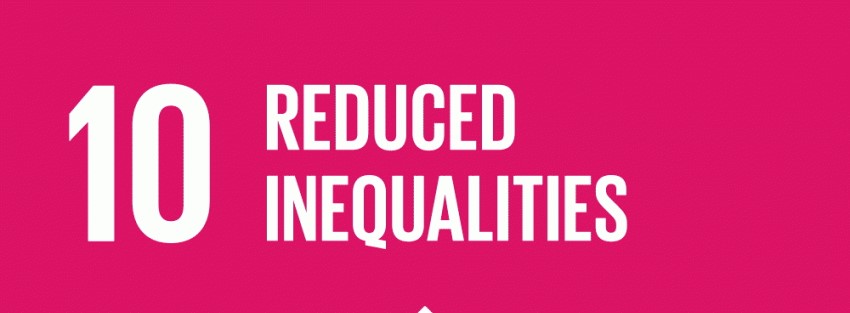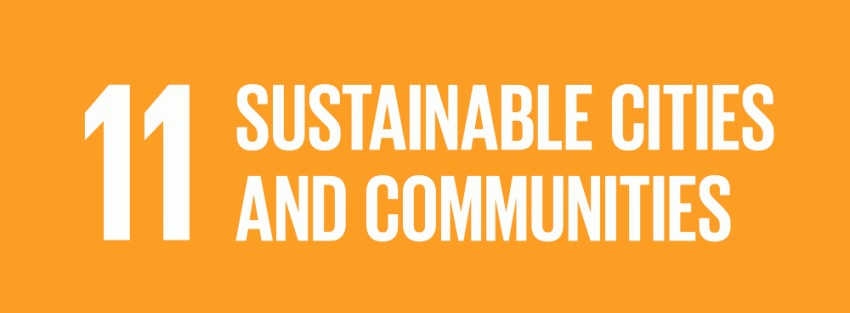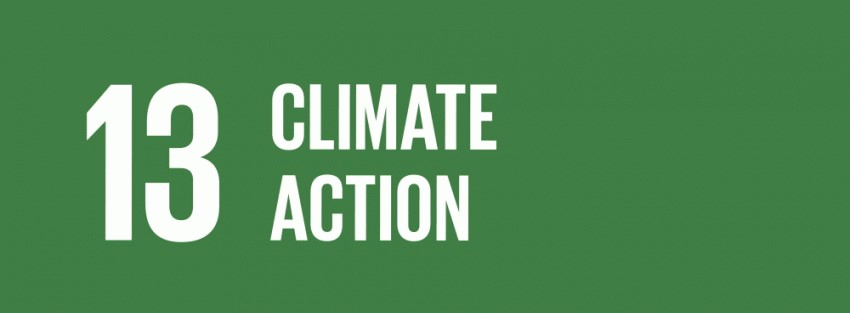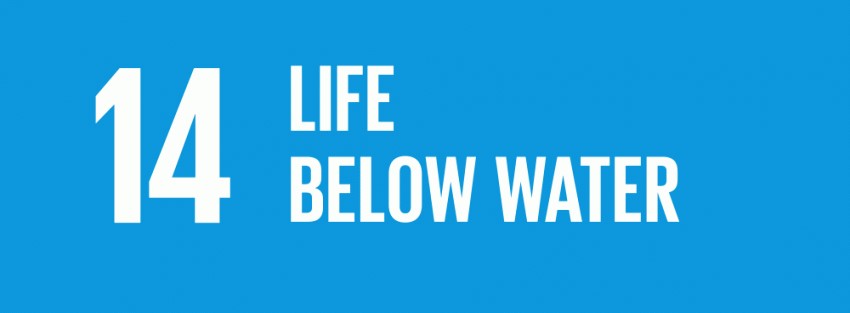SDG 1.3.2
Graduation/completion targets for students who fall into the bottom 20% of household income group
Sustained economic growth cannot be achieved without social inclusion as the whole of society has a role to play in the development of a country. Federal Law No. 13 of 1972 and its amendments by the law (No.2) in 2001 was issued by the Ministry of Community Development.
1.3.2 Does your university as a body have graduation/completion targets for students who fall into the bottom 20% of household income group in the country?
Student Assessment and Late Coursework Guidelines
https://cdn.adu.ac.ae/images-container/docs/default-source/handbooks/ug-handbook.pdf
ADU believes that quality assessment should both document student success (assessment of learning) and help students improve and learn better through provision of timely feedback on their performance (assessment for learning) and how to improve it. Moreover, faculty should develop assessment methods and tasks that serve both purposes of assessments and target knowledge mastery as well as higher order thinking skills and abilities. In sum, excellence in assessment is integral to achieving excellence in teaching and learning, which is in harmony with ADU vision and mission.
Definition
Assessment is the gathering of evidence of student learning and achievement to guide instructional decisions and aid student learning.
Purposes of Assessment
Assessment serves multiple purposes. It provides feedback to the two main immediate users of assessment information or results: students and faculty.
• Students receive relevant feedback on their performance and how to improve it, and instructors receive feedback on their strategies of instructional delivery. Moreover, assessment results help students to reflect on their learning experience, to adjust their learning strategies and skills, and to identify where they need help.
• Faculty receive feedback which helps them to reflect on their instructional strategies, to make necessary adjustments, to track student progress, and to identify which students need extra help.
Assessment Types
There are three major types of assessment: diagnostic, summative and formative.
• Diagnostic assessment is usually conducted at the beginning of the semester and is used to identify student strengths and weaknesses. It provides information that can help both students and instructors to build on the strengths and remedy the weaknesses.
• Summative assessment, on the other hand, is usually carried out at the end of the semester and is used to determine the extent to which the students have achieved the course learning objectives or outcomes (grading function). It helps instructors make decisions and judgments for purposes of student promotion and/or graduation. Final exams and projects, among other forms, serve this purpose.
• Formative assessment, in contrast to summative assessment, is conducted throughout the semester and is used to enhance the learning and teaching process. Information provided by this ongoing assessment helps students improve their study skills, learning strategies and achievement, thus support ongoing student progress, and helps instructors diagnose and respond to student needs (development and improvement function).
Assessment Methods
Accurate and sound assessment requires that a variety of appropriate assessment methods be used and aligned with the intended learning outcomes. There are generally two main assessment methods: traditional and alternative/ authentic. The former includes tools such as paper-and pencil tests and exams while the latter includes tools similar to performance tasks, essays, presentations, projects, practical work, case studies, reports, portfolios. The choice among these tools depends on the discipline, the nature of the individual course as well as the intended learning outcomes.
The following are the assessment tools that ADU faculty members can choose from in assessing their student performance and achievement:
• Tests and exams
• Assignments/homework
• Projects
• Reports
• Presentations
• Essays
• Papers
• Case studies
• Exhibitions
• Portfolios
• Self-assessment
• Capstone course or graduation project
• Performance through observing and judging
Roles and Responsibilities
The task of achieving excellence in assessment requires collaboration among four parties: the Manager of the Center for Faculty Development, College Deans, Department Chairs/Program Directors, Faculty and Students.
1. The role of the Director of the Center for Faculty Development is to plan faculty development activities on student assessment, such as workshops and seminars.
2. The role of the College Dean is:
• to ensure that colleges have their own discipline specific assessment guidelines and procedures that are consistent with ADU Student Assessment guidelines;
• to ensure that these guidelines and procedures are periodically reviewed; and
• to ensure that departments use assessment results for program improvement.
3. The role of the department chair/program director/ coordinator is:
• to collaborate with faculty members in developing assessment guidelines and procedures that are appropriate to their major fields;
• to ensure that faculty members implement these guidelines and procedures;
• to ensure that faculty members inform students of assessment criteria;
• to review assessment methods and criteria; and
• to ensure that assessment results are used for continuous improvement of learning and instruction
4. The role of faculty members is:
• to inform students at the beginning of the semester of the assessment methods and criteria that will be used in assessing their performance and achievement;
• to provide students with feedback on their performance and how it can be improved. Effective feedback should be provided in a timely and constructive manner and includes both comments and grades.
Late Submission Coursework
The due date for each class assignment or project should be clearly indicated to the students in the course outline. Assignments received more than two weeks after the due date should not be accepted.
- Submission dates may be extended in exceptional circumstances. The College or Instructor may use their discretion in approving such requests. Submission of the coursework should not normally exceed the last day of classes.
- Assignments or projects can be turned in any time up to two weeks after the due date will be graded, but a penalty may be applied.
- Assignments submitted at any time up to one week after the due date should have the grade awarded reduced by 2% for each calendar day the assignment is late.
- Assignments submitted more than one week but not more than two weeks after the due date should have the grade reduced by 5% for each calendar day the assignment is late.
Student Archives
The final course result at the end of the semester will remain in Abu Dhabi University’s records in perpetuity. The Office of the Registrar will be responsible for maintaining appropriate storage. Deans, Chairs of Departments and faculty will have read-only access to these records. Back up files will be updated regularly, with another set of files stored in an external and secure location in fire proof cabinets.
Student Exchange Program
https://www.adu.ac.ae/global-mobility/global-mobility-in-adu/Overview
At Abu Dhabi University, we believe that international exposure and diversity in both our faculty and student body are key to a well-rounded education. Our Global Mobility Program provides a world of opportunities for our students to immerse themselves in different cultures, learn from renowned experts at prestigious universities globally, and earn academic credits along the way. Whether through international exchange programs or our 2+2 joint degree options, 3+2 joint bachelor and master's programs, or 4+1 arrangements, we offer a variety of paths for students to broaden their horizons and expand their knowledge. These opportunities help students broaden their horizons and gain real-world experiences, preparing them for future success in a globalized world. With a diverse student body representing over 100 countries, ADU is committed to fostering an inclusive and globally minded community.
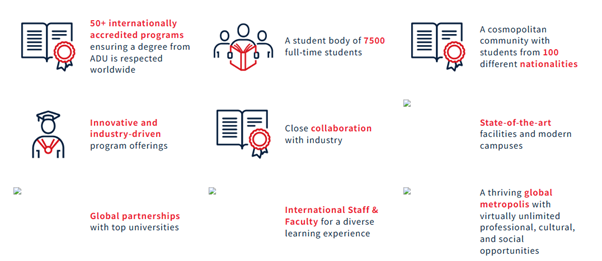
Academic Advising: Mission and Objective
https://cdn.adu.ac.ae/images-container/docs/default-source/handbooks/ug-handbook.pdf
The Academic Advising Office was established in 2011 as one of Abu Dhabi University’s strategic initiatives to support students in achieving their potential and academic goals. The mission of Abu Dhabi University’s Academic Advising Office is to guide and support students during their academic journey to ensure they succeed in achieving their goals and career plans. This is done through regular and consistent communication with each student by forming a partnership with faculty mentors and academic advisors to create and maintain a solid foundation of engaged learning, proactive participation, and a strong sense of personal responsibility.
Main Objectives of the Academic Advising Office:
- Develop academic programs that are consistent with students’ goals and actual strengths to support them in the challenge of making plans and taking decisions that are relevant to their interests and appropriate to their level.
- Advise and assist students with respect to ADU policies and procedures.
- Provide accurate and timely information regarding university requirements, policies, and procedures.
- Guide and motivate students in developing themselves and taking more responsibility for planning their own academic career.
- Act as a focal point between the students and the University in order to ensure that the students fulfill all their academic requirements.
Responsibilities of Academic Advisors:
- Advise and assist students with respect to ADU courses and programs.
- Assist students with registration issues and offer guidance with course selection.
- Identify options for students to satisfy specific degree requirements, evaluate and make recommendations on requests, and make adjustments to the student’s study plan.
- Evaluate the students’ level of development and support their growth by assessing the key factors and generating the required reports when necessary.
The Role of the Faculty Mentor:
Here in Abu Dhabi University, we are deeply committed to helping you succeed in college. The faculty mentoring initiative is one such endeavor. It is designed to make your transition to college a smooth one. In the beginning of your freshman year, a faculty mentor will be assigned to you from University College. In your sophomore year, you will be assigned to a faculty mentor from your major.
The Faculty Mentor will:
- Provide information about degree programs to aid students in making informed decisions regarding their majors and minors.
- Deliver general guidance related to the student’s field of interest.
- Assist students with their choices of majors and minors.
- Mentor students throughout their academic journey in ADU.
- Provide comprehensive feedback regarding students’ performance.
- Meet the students with academic support to monitor their progress and recommend the support needed for their academic development.
Responsibilities of Students:
Successful advising is subject to a number of factors; all of which contribute to the overall success of a student. It is dependent on the shared understanding of, and commitment to, the advising process by students, advisors, and the university. Students will be informed of their academic responsibilities in the advising process.
The responsibilities of students include:
Recognizing the importance of the relationship with their advisors.
Getting the necessary information needed to understand degree requirements in their respective degree program.
Seeking the assistance of advisors/faculty mentors or other university resources on a regular basis.
Keeping their assigned advisors/faculty mentors informed of any academic difficulty and challenges they may be facing.
Taking full responsibility of their decisions in accordance with the best advice and information given.
Advising student with Academic Support Notice:
Prior to the beginning of the registration period for each regular semester, an advising hold is placed on the record of each enrolled undergraduate student who has completed 16 credit hours and above with a cumulative GPA below 2.5. The advising hold prevents a student from registering for courses in the subsequent semester or term. The advising hold for any student can only be removed by the student’s academic advisor.
In order to be eligible for removal of an advising hold, each relevant student must make an appointment for an advising session with his or her academic advisor through the University’s electronic advising system and must attend the advising session. The student should prepare a proposed set of courses for the relevant semester and/or term prior to the advising session.
The student’s academic advisor must record the substance of the advising session in the University’s electronic advising system, including the agreed upon set(s) of courses the student will take in the subsequent semester and/or term. The advisor will remove the advising hold in view of the student at the end of the advising session.
Advising Tools, Purpose and Design
A variety of advising tools are provided to promote efficient and effective communication between students and advisors.
Academic Advising Website
a. Advising webpage for each college.
b. Registration guidelines.
c. The study plan should be more detailed and specific.
d. Inclusion of the Advisor Handbook ( soft copy);
e. Information about the Professional Advisors, and their office timings.
Student Online Account
- Recommended Plan of Study - standard plan for every student of that particular major.
- Plan of Study In-Progress- includes the courses that have been completed in a particular semester until date and GPA.
- The assigned Professional Advisor details indicating instructor’s name, qualifications, office extension, office room number/address, office hours, e-mail ID.
- Link to access a pdf file of the student handbook.
- A list of minors and electives being offered.
- The system should be able to automatically generate the student’s final exam schedule considering the courses taken in that particular semester rather than providing the complete list of all courses and all the exam dates.
- The system should include a step-by-step tutorial for all students to make them familiar with the registration and advising processes.
Academic Advising Manuals
a. Introduction to Academic Advising;
b. Registration guidelines;
c. Placement tests;
d. Information of the respective college;
e. Courses offered;
f. A detailed Study Plan according to each discipline;
g. Information about the Professional Advisors, and their office timings;
h. Campus Academic Support services and Resources.
Online Academic Advising/Faculty Mentoring Forms
a. Academic Advising forms – The one to one advising meetings between the academic advisors and students are recorded through on line e-advising forms. A system generated report which summaries the outcomes of the meetings is emailed to the advisor and student advisee’s ADU mail accounts.
b. Faculty Mentoring forms - The one to one mentoring meetings between the faculty and the students’ mentees are recorded through the on line e-mentoring forms. A system generated report which summarizes the outcomes of the
meetings is emailed to the faculty mentor and student mentee’s ADU mail accounts.
Interactive CDs, DVDs or Minimal PDFs (for newly enrolled students)
a. Detailed Study Plan for each discipline;
b. General Education planner;
Power Point Slides (for orientation sessions)
a. General information about Abu Dhabi University;
b. Information about UC, CAS, COBA, COE;
c. Courses offered in each college; and
d. Detailed Study Plan for each discipline.
The Student Support Portal
https://cdn.adu.ac.ae/images-container/docs/default-source/handbooks/ug-handbook.pdf
The Student Support Portal at Abu Dhabi University is an online platform designed to provide comprehensive assistance and resources to students throughout their academic journey. It offers a range of online services aimed at facilitating students’ success and enhancing their overall university experience. The portal streamlines administrative processes, facilitates access to support Abu Dhabi University | Undergraduate Handbook 2024 - 2025 82 Orientation Program services, and fosters a collaborative and engaging learning environment for all students. Here are some of the services students can avail through the portal:
• Student Visa Services
• Student Transportation Services
• Student Housing Services
• Student Counseling Booking Service
• Recording Community Service/Volunteering Hours
• Submitting Complaints and Suggestions
• Code of Conduct Reporting
These services can be accessed through this link: https://ss.adu.ac.ae/
Alumni Engagement
https://cdn.adu.ac.ae/images-container/docs/default-source/handbooks/ughandbook.pdf
Alumni engagement begins at inception. Once students join the University, their relationship with ADU grows, and the strength of this relationship will define and shape their future success. Our office is committed to maintaining long-lasting relationships with our alumni, and we accomplish this by forging connections through various programs and resources.
Alumni Academy:
This initiative focuses on providing professional development opportunities for our graduates, around a range of topics related to their previous programs of study, career guidance for new graduates, and other topics, which contribute to their personal and professional growth.
Alumni Spotlight:
We highlight our alumni success stories, to learn more about their careers and other achievements and updates that they would like to share with the community.
Alumni Card:
Alumni have the privilege of carrying an ADU Alumni card, which provides a variety of discounts within the community and grants access to ADU campuses and facilities. Alumni Talks: We are proud to invite our alumni as guest speakers and hosts for our events where they share their experiences and advice as entrepreneurs and industry leaders.
Alumni Network Groups:
ADU graduates are encouraged to join our online communities, to network and connect with other alumni, while learning more about alumni events, job opportunities and more. ADU Groups and the LinkedIn ADU Alumni Network, are the main platforms that keep our alumni community connected.
Sustainable Development Goals (SDGs)
Abu Dhabi University is committed to becoming the best institution of its kind in the region. We are a private, multi-campus university committed to meeting the education, skills and knowledge needs in the United Arab Emirates and neighbouring countries through qualifications and standards that are respected across the world.
01
No Poverty
Sustained economic growth cannot be achieved without social inclusion as the whole of society has a role to play in the development of a country. Federal Law No. 13 of 1972 and its amendments by the law (No.2) in 2001 was issued by the Ministry of Community Development.
Introduction
Sustained economic growth cannot be achieved without social inclusion as the whole of society has a role to play in the development of a country. Federal Law No. 13 of 1972 and its amendments by the law (No.2) in 2001 was issued by the Ministry of Community Development.
(MOCD) as the first law to provide social benefits to members of the community to ensure and sustain the high quality of living for all UAE citizens. The Ministry continues to work today on enhancing social inclusion for all members of society where social benefits are extended to cover twenty-one segments of the community.
The UAE government has a future vision to change the culture of social support from the current ‘social welfare’ model to ‘sustainable social development’ that encourages independence and growth of families across the UAE.
ADU is determined to overcome all challenges that ADU and our students might face as a result of the poverty. We continue to be dedicated to empowering and inspiring outstanding students to pursue their goals. Our scholarships and financial aid programs are available to all students who want to fund their academic programmes. We consider it our duty to provide equal opportunities to students interested in pursuing higher education, enabling them to contribute to society regardless of their financial situation.
In additional to financial aid, ADU scholarships are being provided to outstanding students, through seven main categories, including the Sheikh Hamdan Bin Zayed Scholarship, the President’s Scholarship, the University Scholarship, the Academic Scholarship, the Athletic Scholarship, the Alumni Scholarship, and the Family Tuition Waiver.
We take pride in attracting the brightest students in the UAE and offer them generous support, to excel in their studies. Our Scholarship and Financial Aid programmes are part of ADU’s corporate social responsibility and are influenced by the UAE’s great leadership. ADU is constantly finding pioneering and innovative ways to support and facilitate the needs of our students to help them achieve their academic degree.
Emirates Red Crescent and ADU Launch a Humanitarian Funding Campaign
Emirates Red Crescent and Abu Dhabi University recently launched the Education Support Campaign in coordination with Abu Dhabi Cooperative Society and Lulu Group International. Through this collaboration, ADU and Emirates Red Crescent will support disadvantaged students in their university studies, providing them with an opportunity for a successful educational journey. The campaign aims to raise 10 million dirhams, and students will benefit from these funds starting 24 November 2021 and for one year. (This activity is licensed by the Department of Community Development – Abu Dhabi, permit number 022).
Abu Dhabi Cooperative Society and Lulu Group International will aid the campaign by facilitating donations through their different points of sale. Community members will show their solidarity by donating valuable aid to students, starting at two dirhams.
Public donations will be accepted via text message through Etisalat and Du. Bank donations can be sent to Sharjah Islamic Bank - account number (11445518006), IBAN (AE350410000011445518006). Individuals can also donate through the link provided on the Emirates Red Crescent website (https://www.emiratesrc.ae/eduadu), with the donations ranging from ten dirhams to 1,000 dirhams.
H.E. Salem Al Rayes Al Ameri, Deputy Secretary-General for Local Affairs at Emirates Red Crescent, said, "Sponsoring students is one of the permanent and continuous programs within the initiatives of the Humanitarian and Development Authority. We continue to witness a high rate of response and generosity from sponsors and benefactors. These donations are considered a true embodiment and reflection of the authority's efforts to invest in empowering individuals and guiding them towards achieving their aspirations and fulfilling their dreams."
Al Ameri added, "The Authority acknowledges the important role it plays in preparing future generations for the responsibilities of tomorrow."
Al Ameri praised the existing cooperation between the Emirates Red Crescent and Abu Dhabi University, which seeks to support education and provide opportunities to disadvantaged students whose family circumstances prevent them from continuing their educational path. The cooperation embodies Abu Dhabi University's commitment to fulfilling its social responsibility, as well as its leading academic role in advancing science and education as the most important pillars of human development in the country. He also praised the role of the Abu Dhabi Cooperative Society and Lulu International Group in supporting the activities of the campaign.
Salem Mubarak Al Dhaheri, Executive Director of Community Relations at Abu Dhabi University, said, "Abu Dhabi University is proud of its strategic partnership with Emirates Red Crescent in launching the Education Support Campaign. The campaign aligns with Abu Dhabi University's mission to support students and allows us to share social responsibilities with the community. We are proud of the continuous cooperation and renewed partnership with Emirates Red Crescent in launching campaigns that carry a noble message and achieve a tangible and real impact on our society."
Al Dhaheri added, "Abu Dhabi University appreciates the role of the Abu Dhabi Cooperative Society, Lulu International Group, and all participating partners in supporting the campaign activities. Investing in our young people and building an educated generation capable of leading the continued development of our country is vital."
Abdul Majeed Al Khouri, the Executive Director of the Abu Dhabi Cooperative Society, commented, "Our participation in the Education Support Campaign confirms the depth of the decades-old relationship between the Abu Dhabi Cooperative Society and Emirates Red Crescent. With God's grace, it has gone beyond humanitarian work and now encompasses sustainability. We are proud of this pioneering partnership. The Abu Dhabi Cooperative Society has always sought to serve the community of the UAE and we continuously contribute to helping and supporting various sectors in Abu Dhabi and the other Emirates."
Al Khoori added, "The initiatives adopted by the Abu Dhabi Cooperative Society reflect our passion towards aiding societal struggles related to education. Abu Dhabi Cooperative Society has initiated partnerships with ministries and governmental institutions, such as the Ministry of Social Affairs and the Emirates Red Crescent, to create opportunities for those who dream of pursuing their educational journey. In the last few years, we doubled our efforts and developed initiatives that will allow us to serve our country and consolidate the concept of social responsibility. We are proud to be part of an institution that provides its students with an environment that values charitable work and social development while simultaneously providing high-quality education and academic qualifications that are respected worldwide."
Mr. Aboobakker TP, Director of LuLu Hypermarkets Abu Dhabi and Al Dhafra region, said, "This initiative embodies the belief and commitment of LuLu Group in the bright future of the UAE and the power of the Emirati youth to shape it."
"Education is one of the strongest building blocks for a nation's future, and LuLu Group is honored to share in raising valuable funding for needy students," he continued. "It empowers Emirati youth to contribute to their best potential and lead the future of the country. It is particularly timely that this campaign comes on the eve of the 50th anniversary of the UAE's nationhood. We at LuLu Group International are proud of our identity as a 'homegrown' UAE brand and see this participation in the 'Let's Support Their Future' campaign as our humble contribution to the nation that gave us so much to build upon."
Sustainable Development Goals (SDGs)
Abu Dhabi University is committed to becoming the best institution of its kind in the region. We are a private, multi-campus university committed to meeting the education, skills and knowledge needs in the United Arab Emirates and neighbouring countries through qualifications and standards that are respected across the world.

